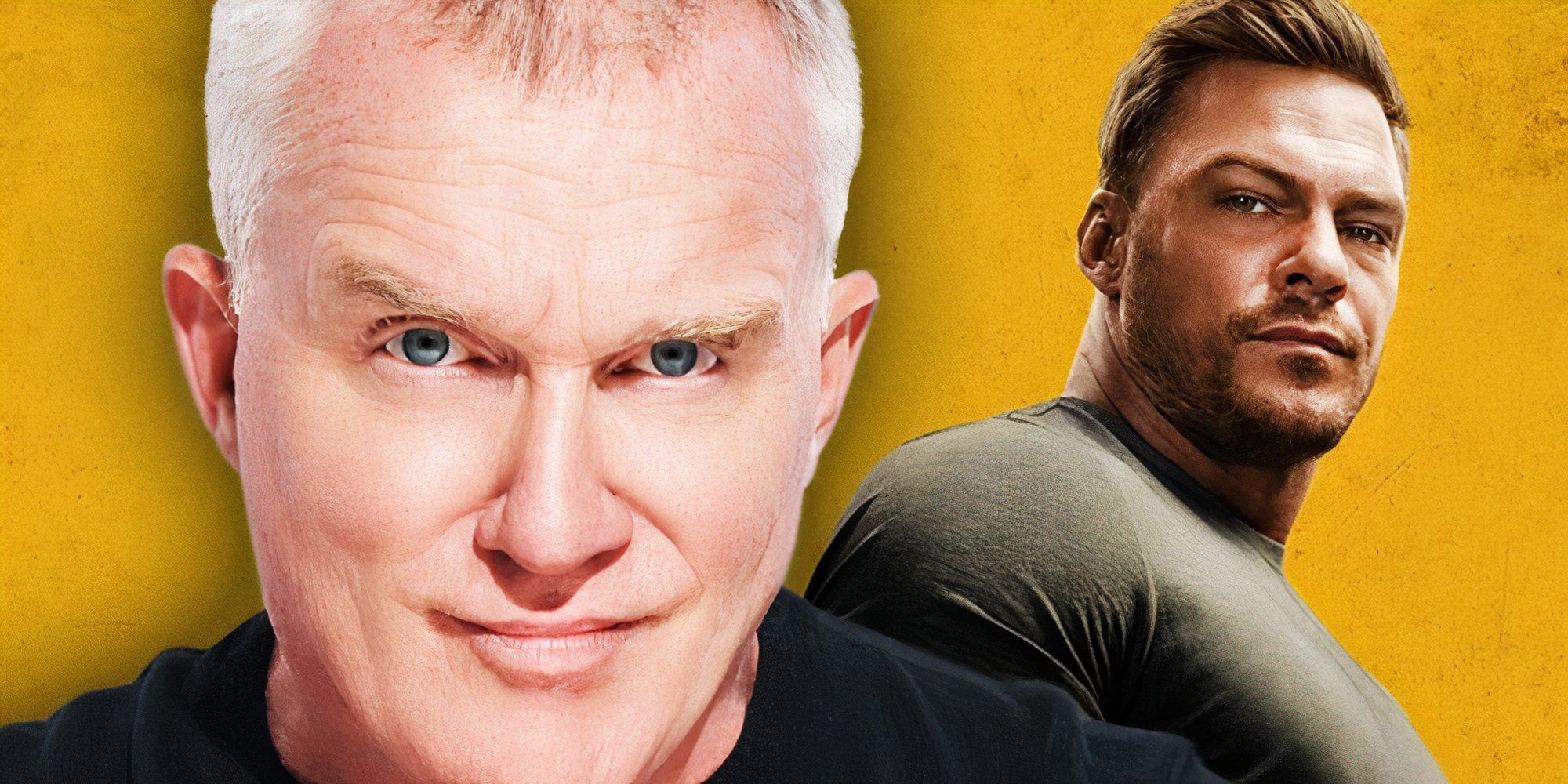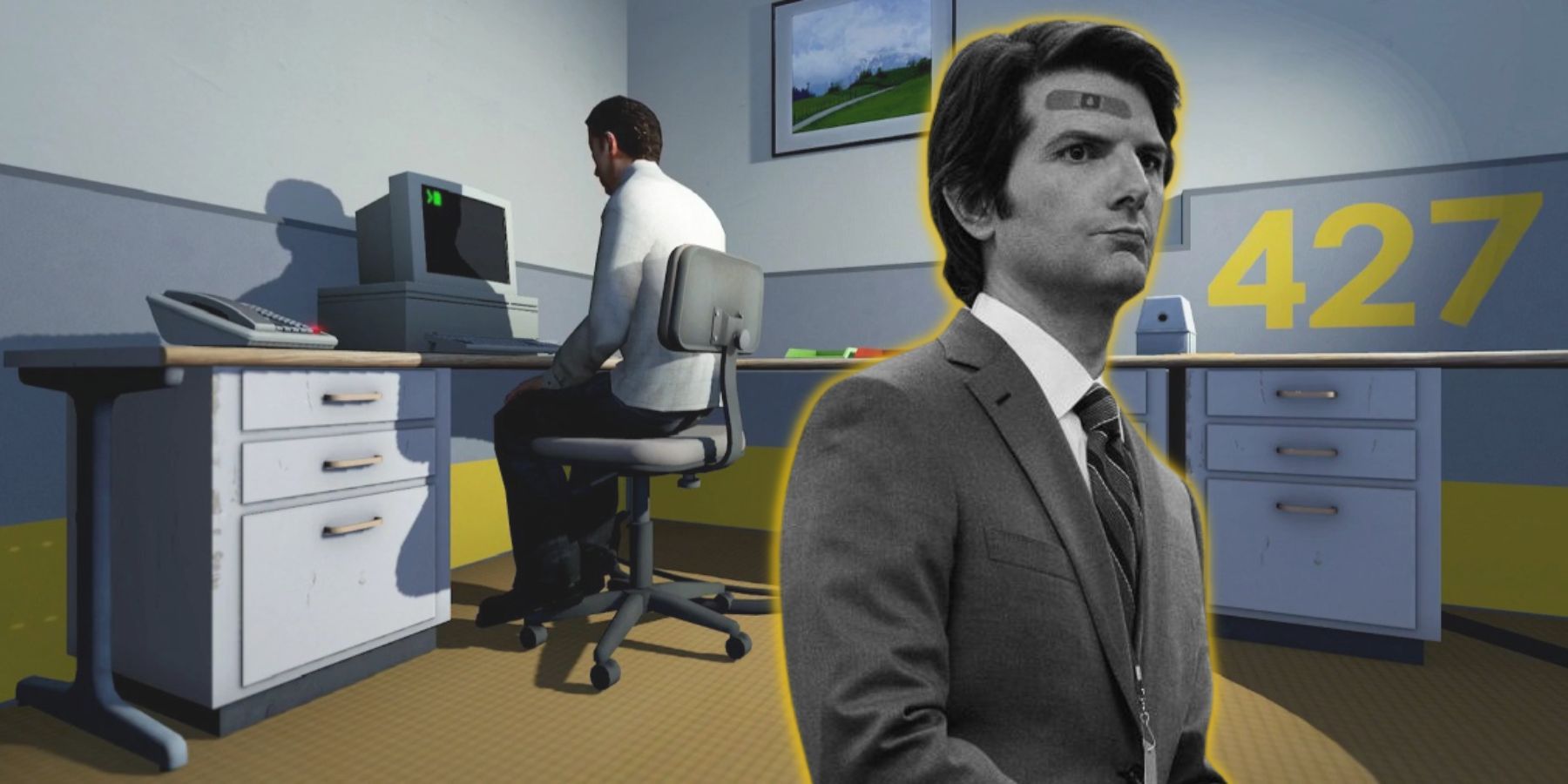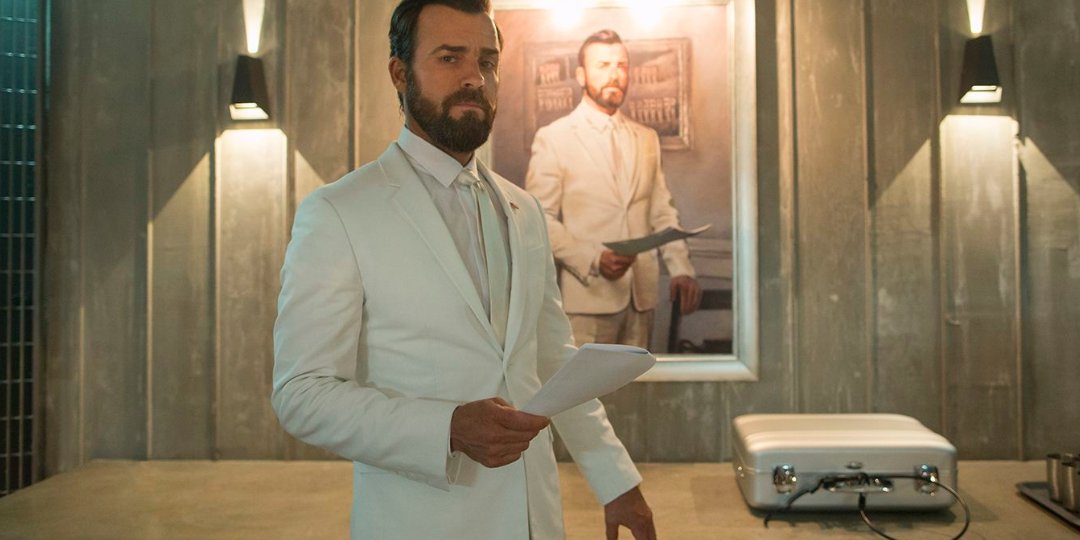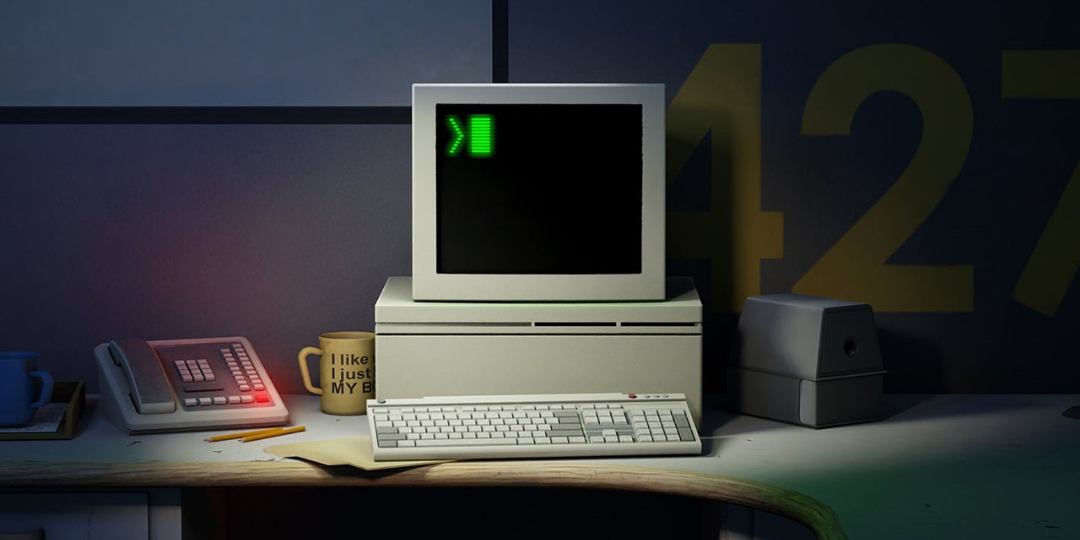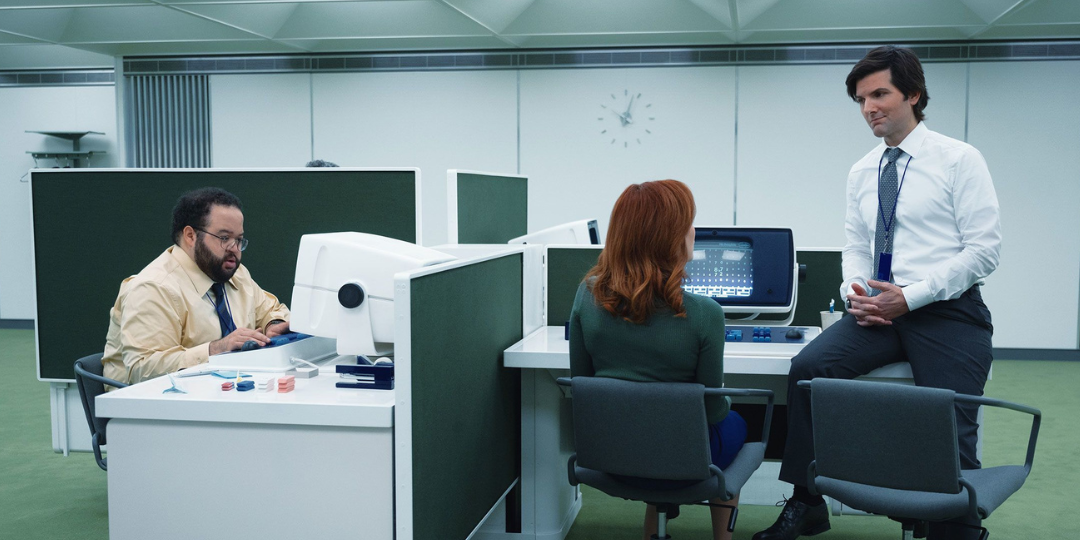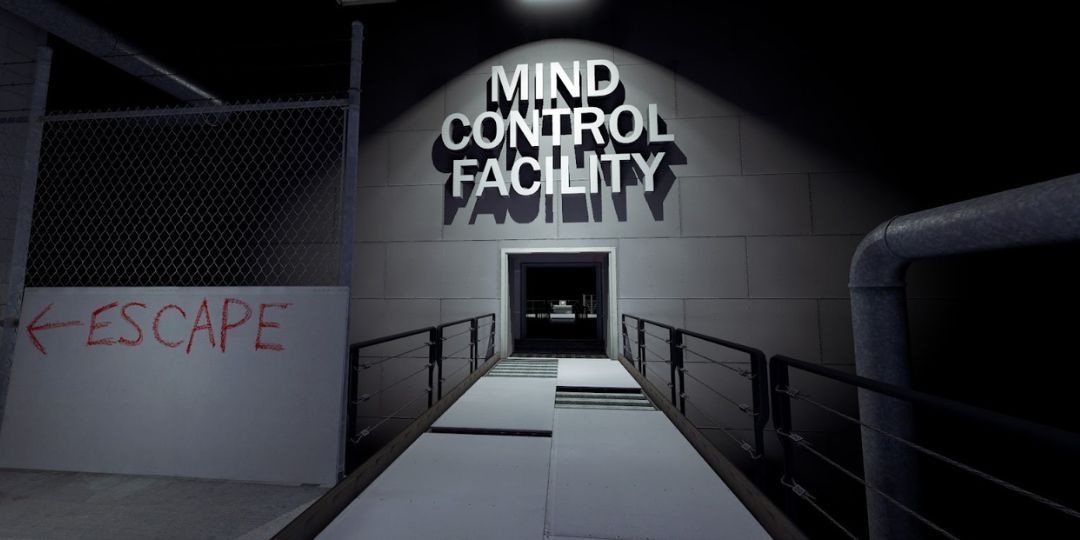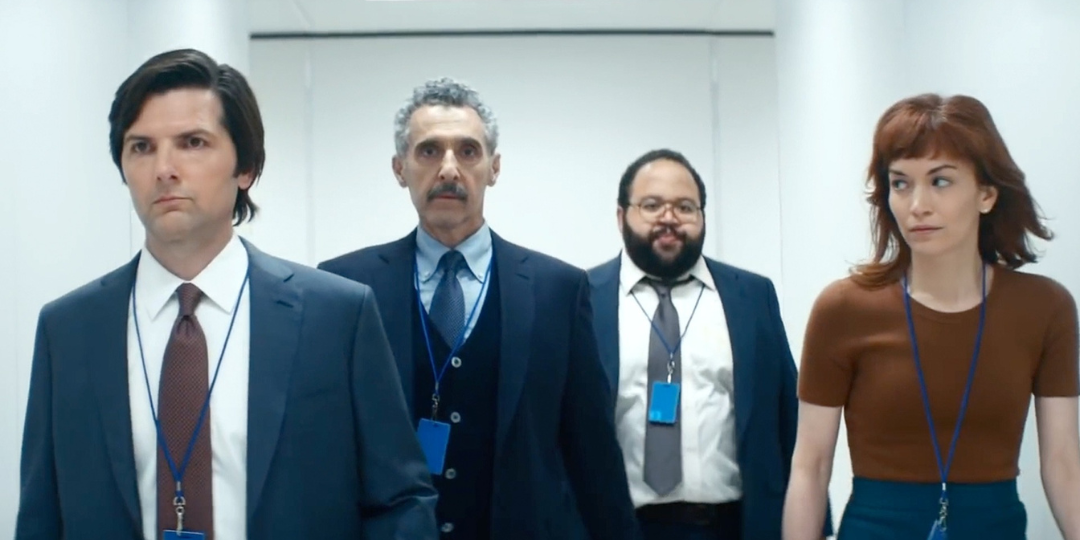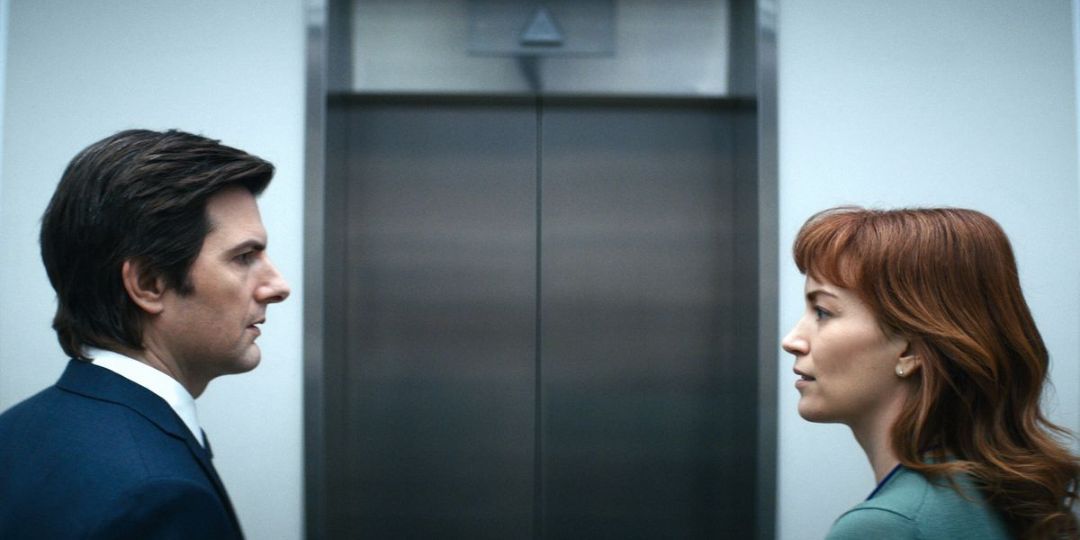In recent years, the phrase “work-life balance” has become incredibly buzzy. The Apple TV Plus critical darling, Severance, took that notion to a dystopian extreme in 2022. In the nine-episode series, Adam Scott (Parks and Recreation) plays Mark, a team leader who works in a rather unique office: all the employees have undergone a procedure to have their memories surgically divided between their work lives and their personal lives.
But Severance isn’t the first — nor will it be the last — psychological thriller to take on the dehumanizing grind of capitalism. In 2013, indie game The Stanley Parable, written by Davey Wreden and William Pugh, delved into the nature of choice versus predestination. The game’s tagline? "The Stanley Parable is a game that plays you." Although nearly a decade separates Galactic Café’s game and the Apple TV show, the two works have a lot in common.
Opening the Mystery Box
In storytelling, the idea of the mystery box is deceptively simple: find an object or idea to present to the viewers, but withhold the whole truth. It’s an incredibly enthralling setup — the opposite of a big reveal. Viewers see the man behind the curtain, and it’s intriguing, but they don’t know who he is or why he’s important. As the show goes on, the details come into focus.
Acclaimed shows like Twin Peaks, The Leftovers, and Lost all tap into jigsaw-puzzle plot constructions. Another notable example? J.J. Abrams’ Alias — a project that came before his work on Lost and Fringe. Nearly 15 years ago, Abrams gave a now-infamous TED Talk about mystery boxes in film and TV writing. While some viewers were rightly critical of the filmmaker’s own execution of the concept — polar bears, anyone? — Abrams does present an interesting thought: the intrigue of the box, of understanding and knowing, is more satisfying than whatever’s inside the box.
That observation might ring true in some cases. For example, was the world building and time-bending mythos of BioShock Infinite more intriguing than the big reveal about Booker’s identity? Arguably, yes. But there are some smart stories that pull it all off and present a reveal (or answer) that’s just as intriguing as the mystery box itself. Severance and The Stanley Parable are two such narratives.
The Game That Plays You
In The Stanley Parable, the titular player character is a silent protagonist known as employee 427, who spends his day monitoring data on a computer screen and pushing buttons. Stanley doesn’t ask questions. But, one day, his monitor goes blank, encouraging him to explore his workplace. In doing so, he discovers the building is abandoned. So, why was he mindlessly pushing buttons?
The game is narrated by a disembodied, omnipresent voice. As the player is confronted with different options, they may choose to make Stanley do something that directly contradicts what the narrator says he’s doing. Should Stanley stick to the predetermined path by following the narration? Or should the player help him exercise free will? For the voice-of-god narrator, there’s one “proper” path, and they’ll remind the player of that frequently.
The game hinges on paradoxes. While the player has choices, they also don’t. Despite the game’s 19 endings, there isn’t really a conclusion to Stanley’s story. That’s part of what makes it such a successful parable: it’s simple, on the surface, and illustrates a moral lesson. The only quandary? The game presents just as many lessons as it does endings. That can leave something to be desired for some players, but, for others, the lack of definitive “answers” allows for variable interpretations.
The Eternal Sunshine of Severance Packages
Like The Stanley Parable, the Ben Stiller-directed and Dan Erickson-created Severance takes aim at the workplace. At Lumon Industries, the biotech company where Mark (Scott) works, employees are cogs in a well-oiled machine; they don’t have time for distraction. To that end, once they’re in the Lumon offices, Mark and his colleagues in the Macrodata Refinement Department — Helly (Britt Lower), Dylan (Zach Cherry), and Irving (John Turturro) — have no recollection of their life outside the building. It's a kind of partial, location-specific lobotomy.
While this Eternal Sunshine-ing of employees’ lives breeds efficiency, it also leads to questions — moral ones, yes, but also probing ones about the nature of the company and the work. The show is satirical, but it’s also thrumming with paranoia. Despite the claustrophobic office spaces, it feels overwhelming — like something out of 2001: A Space Odyssey (1968).
But unlike The Stanley Parable, Severance can’t leave as much in the gray area. By nature of their respective mediums, Stanley can be vague to the end, and can even reset the story, because it’s an interactive experience. If a player doesn’t like one ending, they can try another. Severance, meanwhile, has to offer up satisfying answers to the deep questions it asks in a completely different way. Without the option of player choice or multiple ending scenarios, the series needs to present an outcome (or first-season cliffhanger) that’s as rich as the mystery it sets up.
Answering the Big Questions
The most evident parallel between Severance and The Stanley Parable? The setup. Employees work day in and out, never giving the nature of that work or their company a second thought. And then something shifts. Another coworker vanishes, traces of them appear outside the office. Employees start asking, “why?”, unsatisfied with what they know (and don't know). Maybe a computer screen doesn’t tell a character what to do next, what button to push, and they find their office desolate. No matter the case, unquestioned monotony is upended.
While The Stanley Parable is all about choosing paths and walking through doors, Severance is about showing the undeniable link between the lives led behind both doors — those of private and professional life. But as the stories progress in both titles, those parallels shift.
If the player follows all the narrator’s directions in The Stanley Parable, they’ll end up in the Mind Control Room. Kind of on the nose, yes — but the player has two options: press a button that shuts the machine down, or one that doesn’t switch off the mind control. If the player turns off the Mind Control device, they emerge from the office into a green pasture. If they keep it on, the facility self-destructs, taking Stanley with it. Listening to the narrator leads to freedom — well, “freedom,” given the following instructions of it all.
For the Lumon employees at the heart of the Macrodata Refinement Department, their various “endings” expose harsh truths. In the first season’s finale, the severed Lumon employees — a.k.a. Innies — take a huge leap in learning more about their outside-of-work selves — their so-called Outies. Inside Lumon, Dylan holds the switches that will keep his colleagues “awake” in the outside world. He does so at the expense of finding out more about his family, but it’s clear that he’ll be anything but a complacent worker in the show’s sophomore season.
In the outside world, Irving discovers that his Outie self has been tracking down retired Lumon employees — and, maybe, trying to “wake” himself. Helly, meanwhile, learns her true identity as well as her personal ties to Lumon. However, that doesn’t stop her from sharing the company’s abuses — and the moral quandaries associated with the severance procedure — with shareholders. Finally, Mark learns that he willingly took a severed job in the wake of his wife’s death. The real shock, though, comes when Mark sees a photo of his wife, Gemma (Dichen Lachman), and recognizes her as a fellow (and very much alive) Lumon employee.
Severance’s cliffhangers are searing. The amount of control Lumon exerts is terrifying, and the pain the company has caused stings. Helly’s family is literally the company, underlining the toxicity of workplace culture that’s sprung up in recent years. As always, it feels the employees have sacrificed more — and have much more to lose — than the bottom-line-loving, unethical corporation that pretends to have its employees’ best interests at heart.
While Severance offers more definite, fleshed-out plot points for its viewers than The Stanley Parable does for its players, the titles continue to have something in common: once a door is opened, or walked through, there’s no going back. The employees at Lumon and Stanley can’t unknow what they’ve seen and experienced. It’s not unlike working in an office cubicle: seated, a worker can’t see anything other than their desk. But once they stand up, they can see over the dividers the company has placed — and know of everything that’s beyond the partition.
As of this writing, Severance has been renewed for a second season, but its release date is TBA. The Stanley Parable: Ultra Deluxe edition is now available on PlayStation 4 and 5, Nintendo Switch, Xbox One, and Steam.

